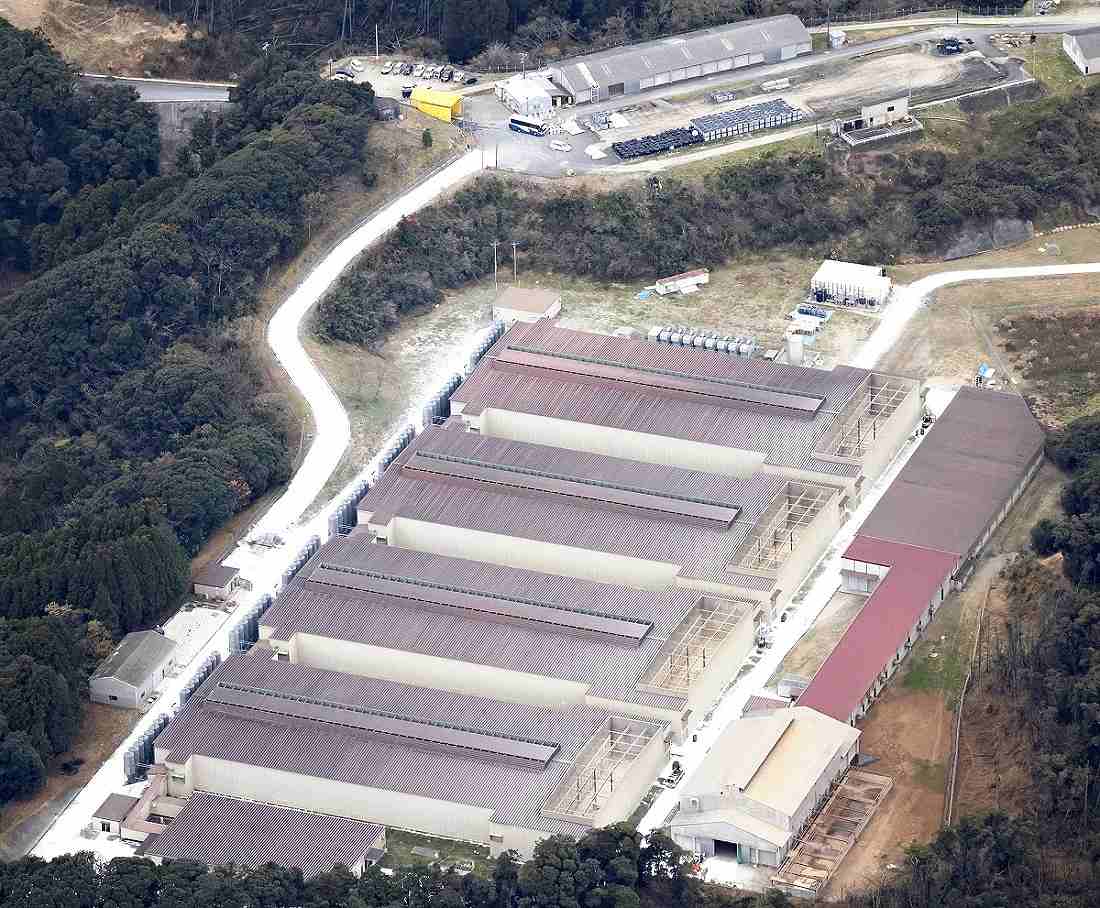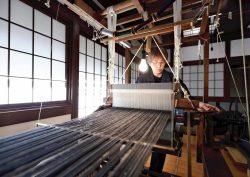
A poultry farm in Isumi, Chiba Prefecture, where avian influenza was confirmed
13:44 JST, December 31, 2020
A highly pathogenic avian influenza raging across the nation’s poultry farms has now spread to 13 prefectures, mainly in western Japan, since first being confirmed in early November.
Nearly 5 million birds have had to be culled, already a record, and there are fears the outbreak can occur anywhere in the country, with at least one case already recorded in eastern Japan.
In the Pacific coast city of Isumi, Chiba Prefecture, 220 chickens that were found dead on Dec. 23 at a poultry farm later tested positive for avian influenza.
Genetic analysis revealed that the virus is a highly pathogenic H5N8 subtype with a high mortality rate. It is the same type as that found in western Japan.
Under quarantine guidelines based on the Domestic Animal Infectious Diseases Control Law, all birds on poultry farms where the virus is detected must be destroyed to prevent its spread.
The farm in Isumi breeds about 1.16 million egg-laying hens, the largest in the prefecture. Even with the help of the Self-Defense Forces, which was dispatched upon appeal as disaster relief, the slaughter will take until Jan. 7 to complete.
■ Every few years
In 2004, the avian influenza was confirmed in Japan for the first time in 79 years. Since then, it has appeared every few years.
According to the Agriculture, Forestry and Fisheries Ministry, fatalities in humans infected with bird flu have been reported overseas, but no cases of humans being infected have been confirmed in Japan.
In addition to poultry farms where the outbreak occurred, chickens from associated farms in the area must be culled to ensure that no eggs or meat from chickens suspected of being infected are distributed to the market, the ministry said.
The first bird flu case of this season was confirmed on Nov. 5 at a poultry farm in Mitoyo, Kagawa Prefecture. The infection was later found in Fukuoka and Hyogo prefectures, and as of Monday, it had spread to 13 prefectures and 32 poultry farms.
On Tuesday, Miyazaki Prefecture recorded its ninth case of a chicken testing positive. The total number of birds culled this season has already reached about 4.64 million, far exceeding the previous record of about 1.83 million in fiscal 2010.
■ Coming from Europe
The H5N8 subtype virus confirmed this season had been detected in the droppings of wild birds in Hokkaido and South Korea in late October.
The National Agriculture and Food Research Organization in Tsukuba, Ibaraki Prefecture, analyzed the genes of viruses in the first and second cases that broke out in Kagawa Prefecture and found that they were close to the virus that hit Europe last season.
According to the agriculture ministry, it is highly likely that wild birds carrying the virus with European origin migrated eastward and, after stopping in Siberia and the Korean Peninsula, arrived in Japan starting this autumn.
■ Affecting exports
The spread of the avian influenza could have an effect on exports of chicken eggs and poultry.
According to Finance Ministry trade statistics, egg exports have been rising steadily in recent years. Such exports, which totaled ¥620 million in 2015, reached a record ¥3.75 billion as of October this year, with 97% going to Hong Kong.
Japanese chicken eggs are relatively expensive, but have a reputation for well-maintained hygiene. The increase in home consumption amid the coronavirus pandemic is believed to have contributed to rising exports.
Meanwhile, exports of chicken meat to Hong Kong, Cambodia and Vietnam are hovering around ¥2 billion a year. Current exports from the 13 affected prefectures have been halted except to Cambodia, with resumption up to individual negotiations with each country.
According to the agriculture ministry, international standards and past history dictate that in most cases, exports can resume if there are no new outbreaks within three months of taking epidemic-prevention measures, including culling, burying and disinfecting.
Top Articles in Society
-

Man Infected with Measles May Have Come in Contact with Many People in Tokyo, Went to Store, Restaurant Around When Symptoms Emerged
-

Woman with Measles Visited Hospital in Tokyo Multiple Times Before Being Diagnosed with Disease
-

Australian Woman Dies After Mishap on Ski Lift in Nagano Prefecture
-

Foreign Snowboarder in Serious Condition After Hanging in Midair from Chairlift in Nagano Prefecture
-

Record-Breaking Snow Cripples Public Transport in Hokkaido; 7,000 People Stay Overnight at New Chitose Airport
JN ACCESS RANKING
-

Japan Institute to Use Domestic Commercial Optical Lattice Clock to Set Japan Standard Time
-

Israeli Ambassador to Japan Speaks about Japan’s Role in the Reconstruction of Gaza
-

Man Infected with Measles May Have Come in Contact with Many People in Tokyo, Went to Store, Restaurant Around When Symptoms Emerged
-

China Eyes Rare Earth Foothold in Malaysia to Maintain Dominance, Counter Japan, U.S.
-

Prudential Life Insurance Plans to Fully Compensate for Damages Caused by Fraudulent Actions Without Waiting for Third-Party Committee Review





















